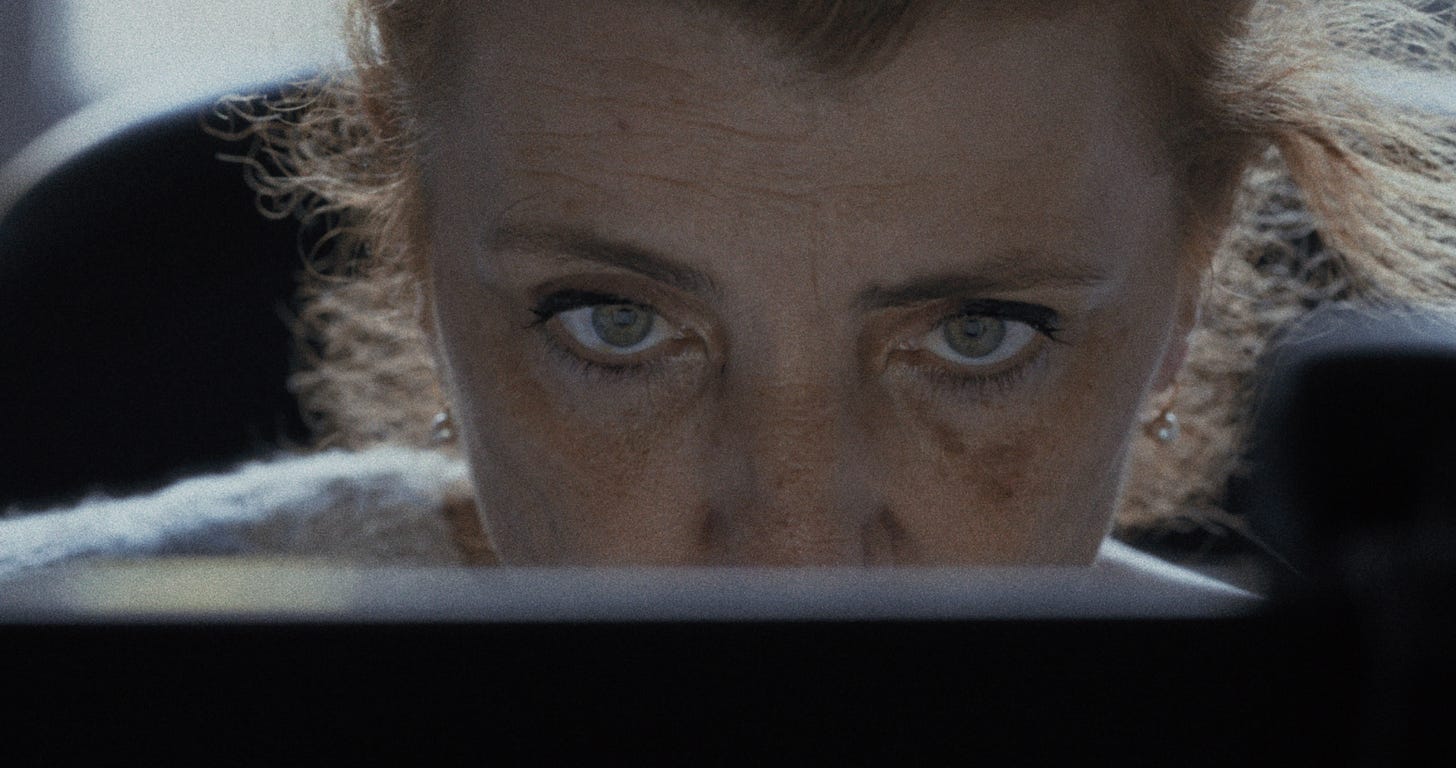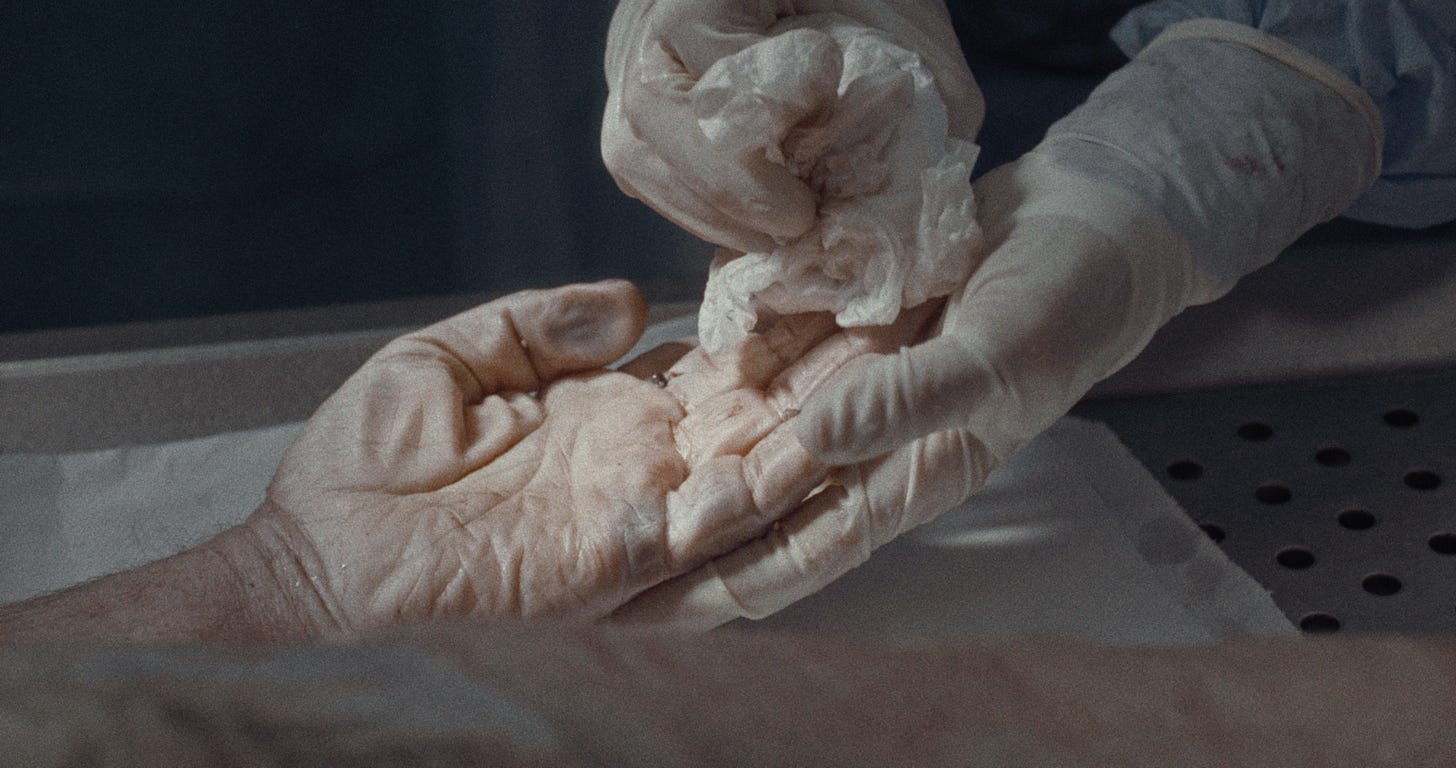Pure Unknown will have its UK premiere on the 27th of January at London’s Bertha DocHouse as part of the Italian Doc Season.
“A person who dies without a name is like a story without an ending.”
Dr Cristina Cattaneo is the head of the Forensic Anthropology and Odontology Laboratory, the Labanof, and deals with the identification of the anonymous corpses that come through the facility. She garnered media attention following the tragic capsizing of a small fishing boat carrying more than 800 foreign nationals seeking better lives in Europe. The boat came into trouble 120 miles from the Italian island of Lampedusa, and the Italian authorities were a major player in the rescue effort.
Only 28 people survived the sinking, and Cristina was vocal about the need to identify everyone lost in the disaster. Pure Unknown follows her efforts to impress the importance of this work on the Italian government and the wider European Union and create a European-wide database that could cross-reference the unknown bodies in morgues with the data from missing persons cases.
Directors Valentina Cicogna and Mattia Colombo decide to eschew talking head interviews with a more naturalistic approach, following Cristina through her day-to-day work and lobbying. The benefit of this, is that we see how all-encompassing this work is to Cristina. When she goes home, she follows the news to see if more migrant ships have run into trouble – trying to gauge if more anonymous persons will need to be identified. We see her emailing politicians late into the night, and then cramming in meetings with her team between lectures and autopsies.
Rather than having Cristina share her exhaustion through an interview, the audience can see etched across her face. We can see it when she realises that the only way to make a change – for the time being at least – is to contact families searching for loved ones herself and piece these identities together bit by bit.
Pure Unknown is not an easy watch. The machinations of government at the level of the European Union mean that the lives and deaths of individuals become data and to see Cristina battle against budget constraints and a lack of responsibility over those lost is a rather damning of human nature. Especially when the closure provided by finding a loved one, even if that person has sadly passed, is far easier to bear than not knowing.
There are moments where the film would have benefited from more formal interviews. By simply following Cristina, we are left with a lot of empty space. Cristina walking her dogs or driving home from work. These scenes do little to drive the story forward, nor do they give us additional insight into Cristina as they continue to appear.
Yet the film is incredibly successful at humanising an issue of such scale it can be difficult for us to wrap our heads around. European countries are so often guilty of dismissing migration beyond the initial point of entry. We care if a ship capsizes, and lives are lost but are soon pushed towards the next story.
This is made abundantly clear in Pure Unknown when Cristina’s fight is nearly derailed by the onset of the COVID-19 pandemic when each country essentially stopped and looked inward to tackle rising death tolls.
The scale of the issue is shown in microcosm later in the film when Cristina helps to identify an Albanian woman who was kidnapped and sold into the sex trade in Italy. The interview with the woman’s family is difficult to watch but there’s no doubting the relief that they feel when they realise, they have found the right person.
Pure Unknown is a film about identity, and how we lose everything when it’s stripped from us. It’s a vitally important piece of cinema, especially at a time when there is a growing interest in political movements that strip people of that identity.
Directors: Valentina Cicogna, Mattia Colombo








